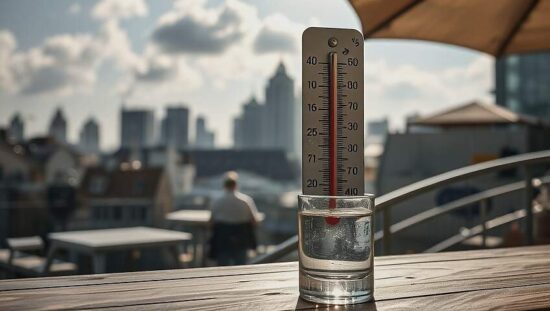A German Government and Opposition at Odds Over Heat Protection at Work
The German government has rejected a proposal by the left-wing party to introduce a heat-free day at the workplace. According to Marc Biadacz, the CDU’s labor and social policy spokesperson, Germany already has a strong and practical work safety system in place, even in high temperatures. He believes that the proposal is “unworldly and economically unviable, especially for the trades, care workers and the public sector.”
The proposal, put forward by the Left Party’s leader, Jan van Aken, suggested reducing working hours by a quarter when the outside temperature reaches 26 degrees Celsius and by half when it reaches 30 degrees Celsius. Additionally, cities and municipalities should provide free water and suncream dispensers to minimize the health risks associated with high heat.
While the CDU’s health policy spokesperson, Simone Borchardt, welcomed the idea of setting up water dispensers, she stressed that it is essential to promote the “health competence” of the population and civil society cohesion during challenging temperatures. She also emphasized that the state should not aim to manage every detail of people’s lives.
The Greens, on the other hand, believe that adapting working hours is the right approach. “Heat at the workplace is a serious health risk” said Andreas Audretsch, the Greens’ deputy faction leader. He emphasized that the heat stress is particularly severe for people who work outdoors, such as construction workers and waste collectors and that it is essential to have adapted heat protection plans in place for each business.
As the climate crisis worsens, extreme heat days are increasing and the Greens believe that the government and states should work together to develop concrete and binding heat protection plans, including providing shady areas, reducing the use of concrete and increasing the number of trees and access to drinking water in the streets.





